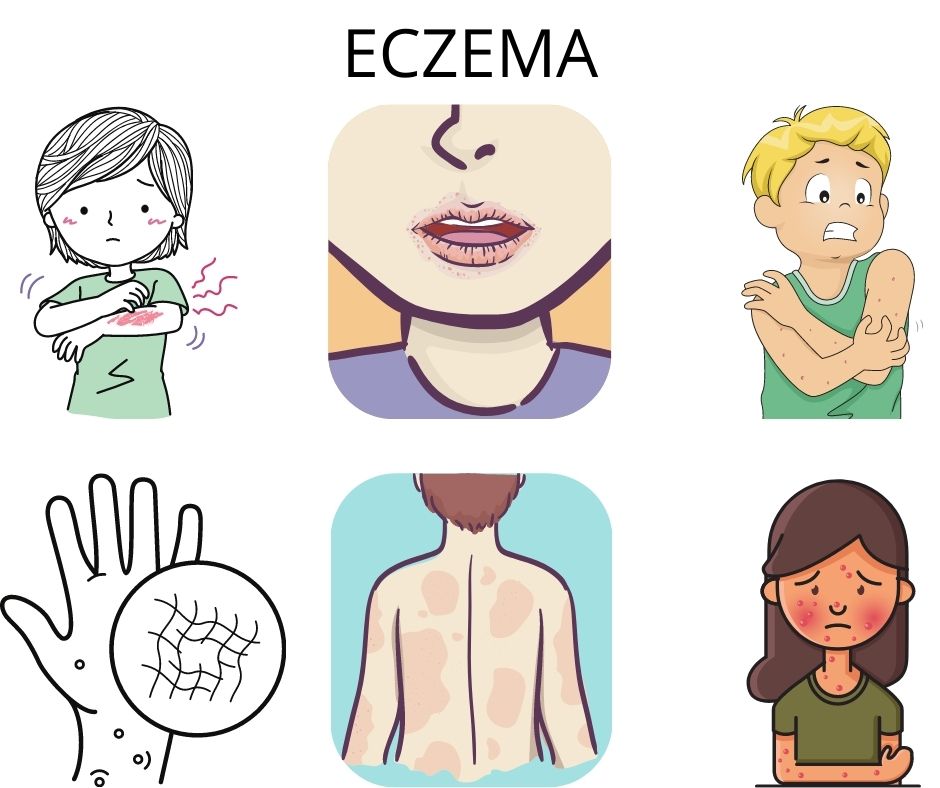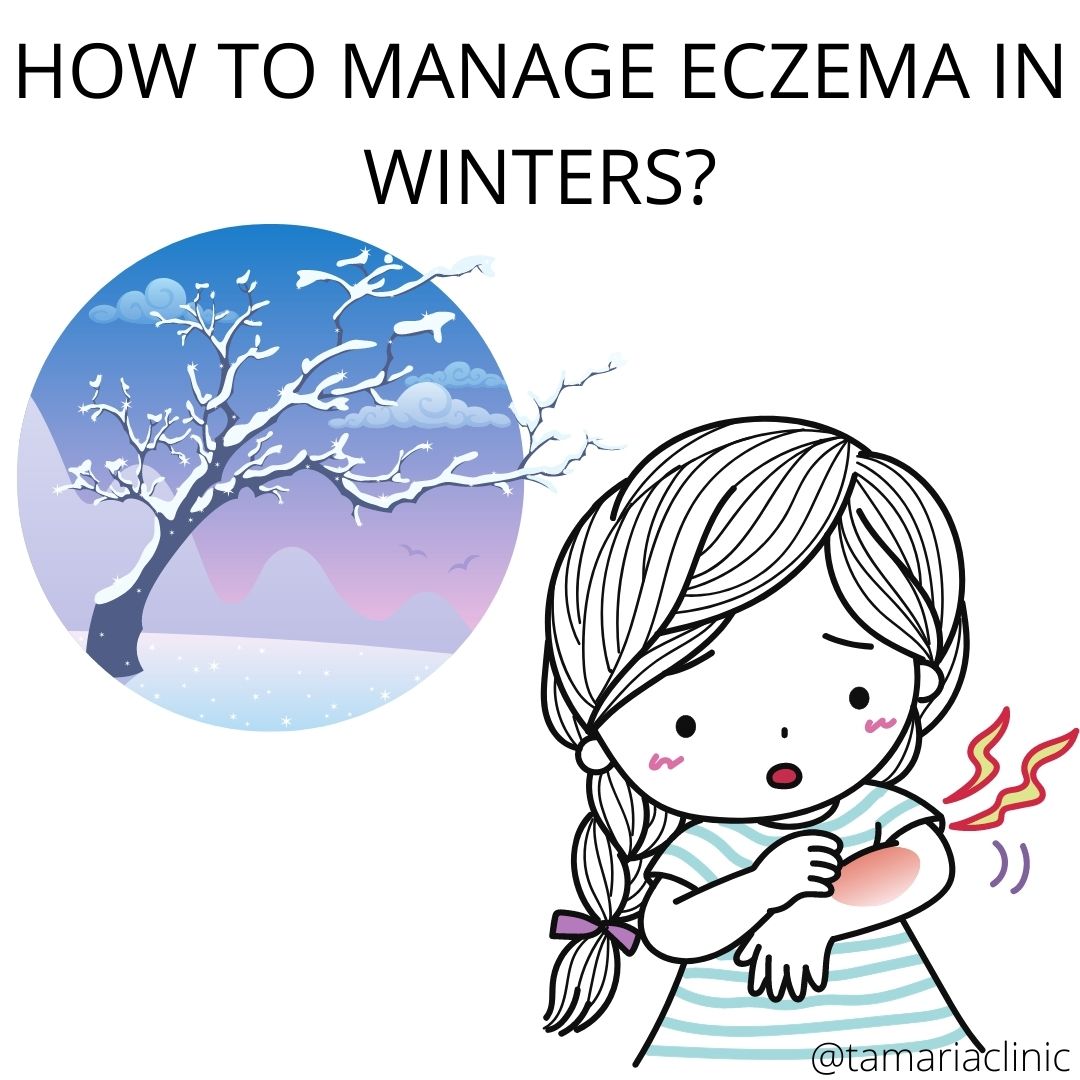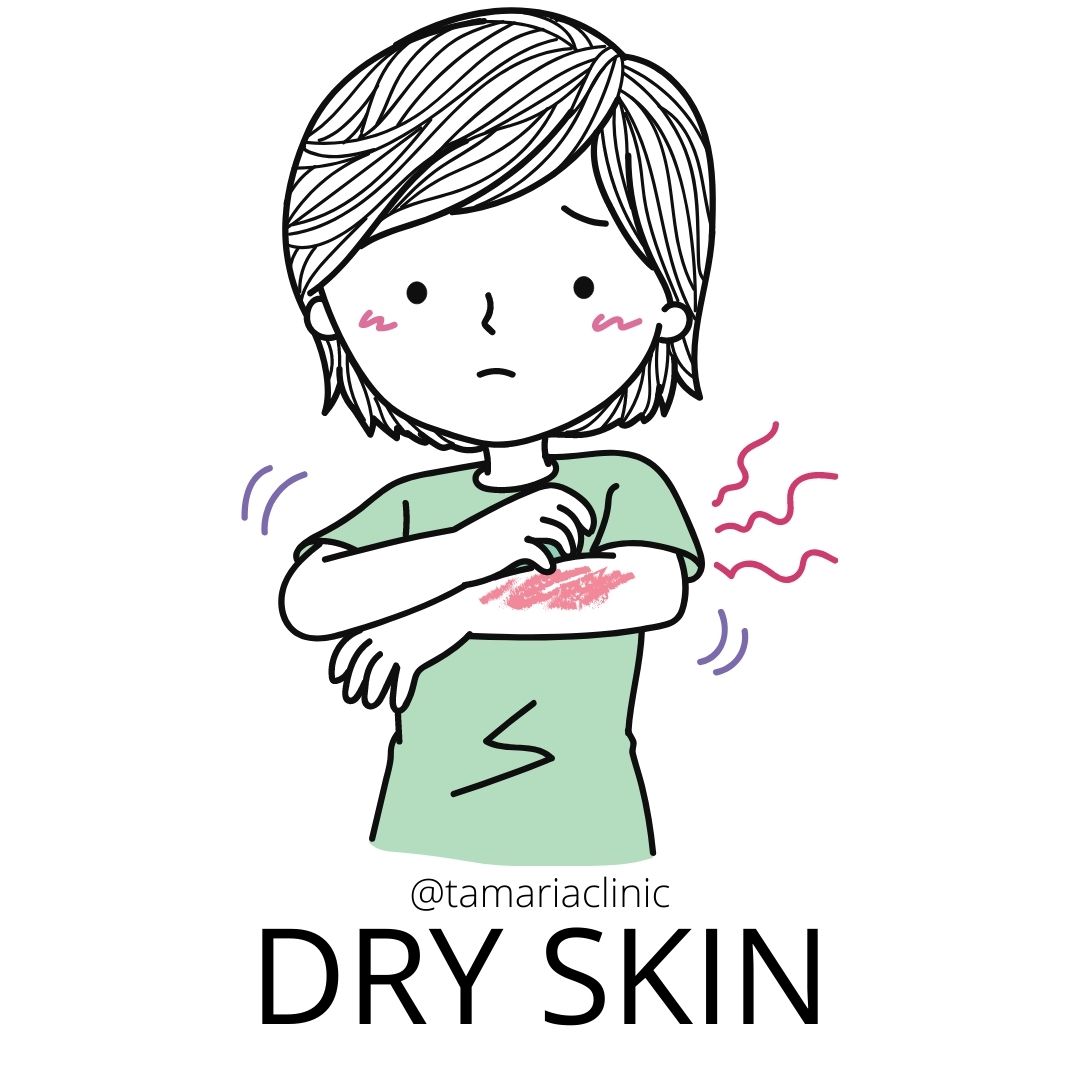THE DEFINITIVE GUIDE FOR THE TREATMENT OF ECZEMA
WHAT IS ECZEMA?
Atopic dermatitis starts with dry skin that is often very itchy and scratching causes the dry skin to become red and irritated, inflamed. Over time, a recurring rash can lead to tough and thickened skin. The cause of it is unknown but it affects the skin's ability to hold moisture.
In Atopic dermatitis skin typically appears as inflamed, itchy, cracked, rough with occasional blisters.
Atopy is a genetic disposition to form excessive IgE which leads to a generalized and prolonged hypersensitivity to common environmental antigens like pollens, house dust mites, etc.
Atopic individuals manifest one or more groups of diseases including
- hay fever
- asthma
- urticaria
- allergies
Most people who have atopic dermatitis have a personal or family history of allergies, such as hay fever (allergic dermatitis) or asthma.
Things that may make atopic dermatitis worse include:
- Allergens such as dust mite or animal dander
- Harsh soaps or detergents
- Weather changes especially dry and cold
- Stress
- An allergic reaction to certain foods such as eggs, peanuts, milk, wheat, fish, etc
- Skin infection
SYMPTOMS & CAUSES
COMMON FEATURES:
- Itching
- Dryness of skin
- Roughness of skin
- Often scaling
- Pigmentation of the skin
IN INFANTS:
- Acute eczema involving the face and trunk.
- Rashes usually appear on scalp and cheeks.
- Rashes usually bubble up before leaking of fluids.
- Extreme itchiness hindering sleep.
- The diaper area is usually spared.
IN CHILDREN (2 YEARS TILL PUBERTY)
- The rashes are usually seen in skin folds like the back of the knees, elbows, neck, and back.
- Itchy pigmented rashes are seen.
IN ADULTS:
- The face and trunk are involved with lichenification (thickened skin) as a common feature.
- Dryness of skin is much marked with scaling.
- Skin infections are common due to scratching.
CAUSES
- The exact cause is unknown, eczema is thought to be caused by a combination of genetic and environmental factors.
- A strong family history of atopy would increase the chances of eczema in the child.
- Environmental factors which would precipitate the symptoms in atopic individuals include:
#Irritants such as soaps, detergents, shampoos, disinfectants, juices, certain food items.
#Allergens such as house dust mites, pollens. Mold etc.
#Certain bacterias, viruses, and fungi.
#Extremes of temperature, humidity, sweating.
#Eggs, nuts, seafood, wheat.
#Stress. - Some women experience the aggravation of their eczema around their menstrual cycle.
DIAGNOSIS & TREATMENT
Diagnostic criteria for eczema are:
Itchy skin with at least three of the following:
- History of itch in creases/ skin folds (cheeks in infants and toddlers)
- Dryness of skin.
- Visible flexural eczema (cheeks, forehead, outer limbs)
- Onset in first two years of life.
TREATMENT
- Treatment for eczema includes care of the skin.
- Lotions that can keep the skin moisturized would help in relieving itching and keeping the texture Fine.
MANAGEMENT
- Advice patient to bath with Luke warm water that is not too hot or too cold.
- Ask the patient to keep the rashes hydrated by applying lotion soon after bathing so that moisture is locked in the skin.
- Ask the patient to avoid wearing synthetic or irritating clothes.
- Ask the patient to wear cotton clothes along with the undergarments.
- Advise patient regarding soaps and body wash. Mild soaps should be used and detergents should be avoided for washing clothes.
- Scratching or harsh rubbing should be avoided.
- Avoidance of triggers and factors which make eczema worse should be avoided.
- Clip short the mails to avoid trauma by scratching.
- Allopathic medicines include lotions, corticosteroids, and antihistamine.
HOMEOPATHIC MANAGEMENT
Homeopathic medicines like graphites, sulphur, natrum mur, staph, anthracinum, silicea, psorinum etc have wondrous results in the treatment of such cases depending on the case and the patient.
DO’S AND DON’TS
DO’S
- Bath with lukewarm water.
- Avoid triggers.
- Keep skin moisturized.
- Clip short nails.
- Apply moisturizer after bathing.
- Use mild soaps.
- Wear cotton clothes.
DON’TS
- Don't bathe with too cold or hot water.
- Don't scratch.
- Don't rub harshly.
- Don't wear synthetic clothes or undergarments.
- Don’t use harsh soaps and detergents.



Comments
We have received your comment , Thank You !